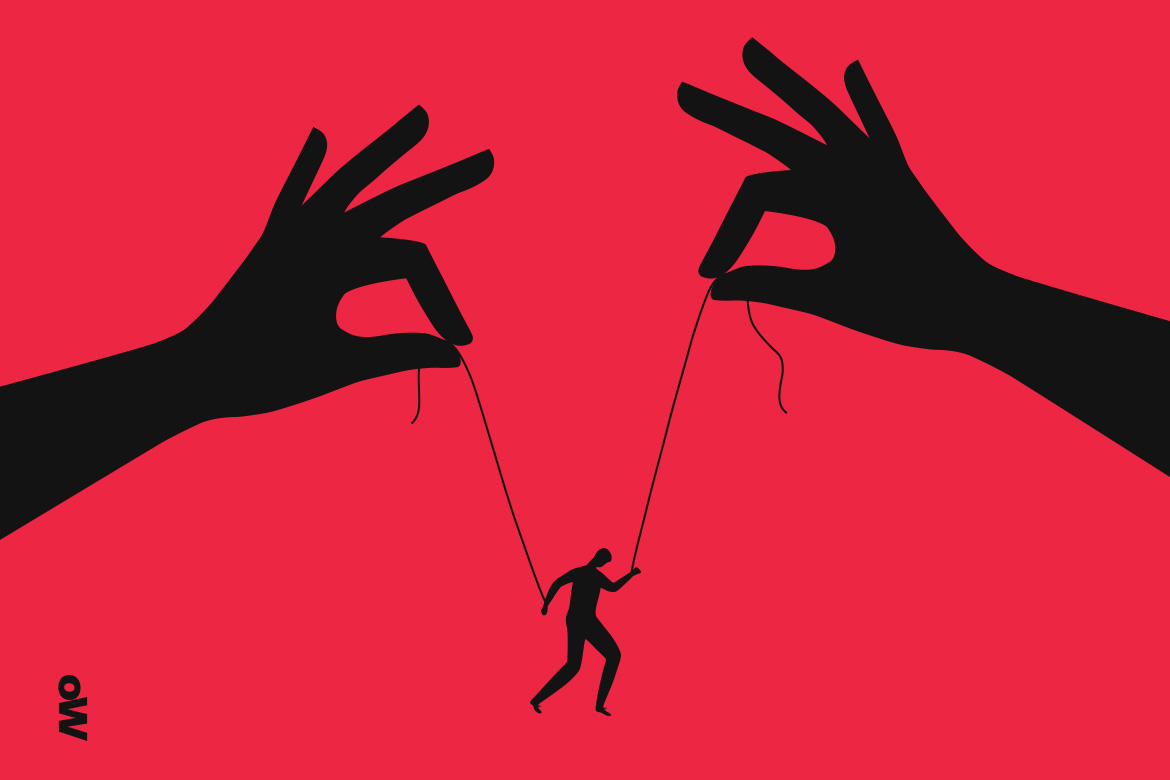Am I Mean Quiz: Transforming Anger Into Positivity

In each of our lives, there comes a moment when we pause and ask ourselves: “Am I mean?” This is an important question that deeply touches our inner essence and influences how we see ourselves in relation to the world around us. It may arise after a heated argument, during moments of solitude, or even amidst the silence of self-reflection.
What's your reaction when your friend shows you their new outfit, and you don't like it at all?
Am I Mean Quiz: Transforming Anger Into Positivity
In each of our lives, there comes a moment when we pause and ask ourselves: "Am I mean?" This is an important question that deeply touches our inner essence and influences how we see ourselves in relation to the world around us. It may arise after a heated argument, during moments of solitude, or even amidst the silence of self-reflection.
The answer to this question often isn't a black-and-white matter. We are all capable of being mean in certain situations or towards certain people. However, when we ask ourselves "Am I mean?", we are truly attempting to delve deeper and understand the nuances of our own character and behavior.
"Am I Mean?" - Why We Ask Ourselves This Question
We live in a world where self-awareness is the key to effective growth and development. In this context, posing the question, "Am I mean?", and our attempt to answer it, is neither strange nor unusual. It's a perfectly natural aspiration to understand our own 'self'.
Self-discovery quizzes and tests are plentiful, covering all aspects of our personality - from career preferences to emotional tendencies. But among this wide range, the question "Am I mean?" occupies a special place. Because it's not just important to know our strengths, but also to be able to acknowledge and work with our weaknesses and shortcomings.
But why is it so important to know the answer to this question? What can it teach us? Let's start with the fact that honesty with oneself is the key to effective development. We all want to believe in our kindness, in our ability to be positive and supportive. But often, it takes just a slight inward glance to discover that our actions and reactions may not be as we perceive them to be.
Therefore, the "Am I Mean Quiz" can turn out to be a surprisingly useful tool for self-reflection. It can help us see and acknowledge those dark sides of our character that we often try to ignore or hide. Perhaps there is a dragon of anger hidden within us that needs to be tamed.
Of course, each of us has moments when we succumb to anger or commit mean actions. This makes us human. But it's important to understand how mean I am and where that boundary is crossed, transforming us from "people experiencing anger" into "mean people".

Signs of a Mean Person
Understanding our inner emotions and motives can be a challenging task, especially when it comes to the more negative aspects of our character. This is where the "Am I Mean Quiz" can prove to be quite useful. It can help identify some key signs often associated with meanness. Let's explore five of them in more detail.
Inflexibility
Your relationships with people around you can tell a lot about you. If you often find pleasure in dominating and controlling others, it might indicate that you are mean, or in some cases, a manipulator. Mean people often seek power and dominance; they want to control and influence others. This is one of the traits that the "Am I Mean Quiz" can assess.
Lack of Empathy
Empathy is the ability to feel and understand the emotions of others. If you often ignore or disregard the feelings of others, it could be another sign that you are mean, or even a misanthrope. Mean people often tend to be egocentric and incapable of empathizing with others.
Aggressive Behavior
Meanness can manifest through anger or aggression. If you get irritated quickly or easily fall into a rage, it may indicate a tendency towards meanness. Aggressive behavior is often associated with the inability to effectively manage stress or control one's emotions.
Resentment and Vindictiveness
If you harbor grudges for a long time and wish for revenge, it could be a sign of meanness. Mean people are often discontented and may have difficulties with forgiveness.
Unfriendliness
Your relationships with other people can also show how mean you are. An unwillingness to help or support others, especially when you are perfectly capable of doing so, may also be a sign of meanness.
It's important to understand that these signs can appear in different degrees and combinations. Perhaps you've noticed only one or two of these signs in your behavior. It doesn't necessarily mean you're mean, but it may indicate that there are some aspects of your personality or behavior you should think about.
Perhaps you're lonely, and this causes you to feel anger or resentment? Or maybe you're in love, and emotions are overwhelming you, making you behave in ways you usually wouldn't. This is what the "Am I Mean Quiz" is aimed at - to help you see and understand these aspects.

Reasons Why You Might Be Mean
Meanness isn't just an emotion, it's a state that can be triggered by various factors. When we ask ourselves "am I mean?", it's also important to understand what could have triggered such a state. Meanness doesn't just happen, it always has a reason. Here are some common reasons for meanness:
- Uncontrollable circumstances: Many of us become mean because of uncontrollable circumstances in life, such as the loss of a loved one, job loss, or illness. Undoubtedly, these are difficult situations that can trigger a whole range of negative emotions, including meanness.
- Resentment or injustice: Another common cause of meanness is a feeling of resentment or injustice. If you feel that you've been wronged or that you are a victim of injustice, this can trigger meanness. This may be particularly true for those who experience discrimination or bias, for instance, because of their sexual orientation. If you are gay or bisexual, and feel dislike or rejection from society, this can trigger feelings of resentment and meanness.
- Defense: Meanness can also be a defense mechanism. Some people become mean because it's the only way they know how to protect themselves. They use meanness as a shield to push people away or to hide their vulnerability. This can be particularly relevant for people who, for example, have encountered homophobia and use meanness as a defense mechanism against discrimination.
As you can see, meanness can be a reaction to various situations and circumstances. That's why it's important to delve into your feelings and understand what exactly triggers your meanness. This might help you answer the question, "am I mean or kind?". And remember, meanness is a natural emotion that everyone experiences. The key is learning to cope with it and not letting it control you.
Common Myths About What It Means to Be “Mean”
During the "Am I Mean Quiz" or when we ask ourselves this question during reflection, we encounter some common myths about meanness. Debunking these myths is important for a more accurate understanding of meanness and for developing a healthier relationship with this emotion.
Myth 1: If I’m Mean, I’m a Bad Person.
Reality: Meanness is an emotion, and it in itself does not make you a bad person. It merely indicates that you are experiencing negative feelings, which is a natural part of the human experience. Actions based on meanness can be bad or harmful, but the emotion itself is just a tool we use to express our feelings.
Myth 2: Meanness Is a Weakness.
Reality: Meanness may be a sign of imperfection, but not weakness. Mean people are often just experiencing complex emotions that they may find difficult to express or process. Denying or suppressing these emotions can lead to greater internal conflict and more intense meanness. Acknowledging and processing these emotions is a process that requires strength and courage.
Myth 3: If I’m Mean, I Can’t Change.
Reality: Like any other behavior or character trait, meanness can be changed through self-reflection, therapy, and effort. If you're asking yourself "how mean am I" and conclude that meanness takes up too much of your life, remember that it's possible to change that. Self-reflection, learning new emotion management skills, and sometimes professional help can be very beneficial.

How to Work on Yourself if You’re Mean
If you've noticed meanness in yourself after taking the "Am I Mean Quiz" or if you often ask yourself this question, remember that the opportunity for change always exists. Meanness doesn't define you as a person, and there are practical steps you can take to cope with this emotion and bring positive changes to your life.
Self-Awareness
The first step towards change is acknowledging that you have a problem. So, you're asking yourself, "Am I mean?". This is already a good starting point. Without this level of self-awareness, you won't be able to move forward. Acknowledging your meanness doesn't make you a bad person; it simply means you're ready to start working on yourself.
Understanding
Try to understand where your meanness comes from. What circumstances or experiences trigger it? What does it tell you about your needs or boundaries? This self-knowledge will help you manage meanness, rather than letting it control you.
Emotional Work
Learn to manage your emotions so that meanness doesn't take over you. This might involve techniques like deep breathing, meditation, or mindfulness practices. Use the question "am I mean" as a catalyst to explore new ways of managing emotions.
Therapy
Professional help can be very beneficial in this process. A therapist or mental health consultant can help you develop strategies for managing meanness and coping with its root causes.
If you are a snowflake person - a term often used to denote people who are especially sensitive to criticism or negative emotions, - working with a professional can be particularly helpful in managing your response to meanness.
Drawing Conclusions
In our fascinating and challenging journey through the paths of self-discovery, facing the question "am I mean" head-on, we open up new horizons of understanding ourselves. However, it's important to remember that this question is not an end goal, but rather a starting point on the path to a deeper self-understanding.
The key discovery we make is that being mean is not the same as being a bad person. It merely indicates the presence within us of potential for further growth and development. This means there are aspects of our behavior and thinking that we can and should improve.
And remember, the most crucial step on the path to change is not just recognizing our meanness, but also deeply understanding its origin and influence on our life. Such understanding provides us with the necessary tools to take control of our emotions and initiate positive transformations.
So, let's greet the question "am I mean" not as a threat, but as an opportunity. An opportunity to become better, an opportunity to grow, an opportunity to turn your meanness into a force for positive changes.
The answer to this question often isn’t a black-and-white matter. We are all capable of being mean in certain situations or towards certain people. However, when we ask ourselves “Am I mean?”, we are truly attempting to delve deeper and understand the nuances of our own character and behavior.
“Am I Mean?” – Why We Ask Ourselves This Question
We live in a world where self-awareness is the key to effective growth and development. In this context, posing the question, “Am I mean?”, and our attempt to answer it, is neither strange nor unusual. It’s a perfectly natural aspiration to understand our own ‘self’.
Self-discovery quizzes and tests are plentiful, covering all aspects of our personality – from career preferences to emotional tendencies. But among this wide range, the question “Am I mean?” occupies a special place. Because it’s not just important to know our strengths, but also to be able to acknowledge and work with our weaknesses and shortcomings.
But why is it so important to know the answer to this question? What can it teach us? Let’s start with the fact that honesty with oneself is the key to effective development. We all want to believe in our kindness, in our ability to be positive and supportive. But often, it takes just a slight inward glance to discover that our actions and reactions may not be as we perceive them to be.
Therefore, the “Am I Mean Quiz” can turn out to be a surprisingly useful tool for self-reflection. It can help us see and acknowledge those dark sides of our character that we often try to ignore or hide. Perhaps there is a dragon of anger hidden within us that needs to be tamed.
Of course, each of us has moments when we succumb to anger or commit mean actions. This makes us human. But it’s important to understand how mean I am and where that boundary is crossed, transforming us from “people experiencing anger” into “mean people”.

Signs of a Mean Person
Understanding our inner emotions and motives can be a challenging task, especially when it comes to the more negative aspects of our character. This is where the “Am I Mean Quiz” can prove to be quite useful. It can help identify some key signs often associated with meanness. Let’s explore five of them in more detail.
Inflexibility
Your relationships with people around you can tell a lot about you. If you often find pleasure in dominating and controlling others, it might indicate that you are mean, or in some cases, a manipulator. Mean people often seek power and dominance; they want to control and influence others. This is one of the traits that the “Am I Mean Quiz” can assess.
Lack of Empathy
Empathy is the ability to feel and understand the emotions of others. If you often ignore or disregard the feelings of others, it could be another sign that you are mean, or even a misanthrope. Mean people often tend to be egocentric and incapable of empathizing with others.
Aggressive Behavior
Meanness can manifest through anger or aggression. If you get irritated quickly or easily fall into a rage, it may indicate a tendency towards meanness. Aggressive behavior is often associated with the inability to effectively manage stress or control one’s emotions.
Resentment and Vindictiveness
If you harbor grudges for a long time and wish for revenge, it could be a sign of meanness. Mean people are often discontented and may have difficulties with forgiveness.
Unfriendliness
Your relationships with other people can also show how mean you are. An unwillingness to help or support others, especially when you are perfectly capable of doing so, may also be a sign of meanness.
It’s important to understand that these signs can appear in different degrees and combinations. Perhaps you’ve noticed only one or two of these signs in your behavior. It doesn’t necessarily mean you’re mean, but it may indicate that there are some aspects of your personality or behavior you should think about.
Perhaps you’re lonely, and this causes you to feel anger or resentment? Or maybe you’re in love, and emotions are overwhelming you, making you behave in ways you usually wouldn’t. This is what the “Am I Mean Quiz” is aimed at – to help you see and understand these aspects.

Reasons Why You Might Be Mean
Meanness isn’t just an emotion, it’s a state that can be triggered by various factors. When we ask ourselves “am I mean?”, it’s also important to understand what could have triggered such a state. Meanness doesn’t just happen, it always has a reason. Here are some common reasons for meanness:
- Uncontrollable circumstances: Many of us become mean because of uncontrollable circumstances in life, such as the loss of a loved one, job loss, or illness. Undoubtedly, these are difficult situations that can trigger a whole range of negative emotions, including meanness.
- Resentment or injustice: Another common cause of meanness is a feeling of resentment or injustice. If you feel that you’ve been wronged or that you are a victim of injustice, this can trigger meanness. This may be particularly true for those who experience discrimination or bias, for instance, because of their sexual orientation. If you are gay or bisexual, and feel dislike or rejection from society, this can trigger feelings of resentment and meanness.
- Defense: Meanness can also be a defense mechanism. Some people become mean because it’s the only way they know how to protect themselves. They use meanness as a shield to push people away or to hide their vulnerability. This can be particularly relevant for people who, for example, have encountered homophobia and use meanness as a defense mechanism against discrimination.
As you can see, meanness can be a reaction to various situations and circumstances. That’s why it’s important to delve into your feelings and understand what exactly triggers your meanness. This might help you answer the question, “am I mean or kind?”. And remember, meanness is a natural emotion that everyone experiences. The key is learning to cope with it and not letting it control you.
Common Myths About What It Means to Be “Mean”
During the “Am I Mean Quiz” or when we ask ourselves this question during reflection, we encounter some common myths about meanness. Debunking these myths is important for a more accurate understanding of meanness and for developing a healthier relationship with this emotion.
Myth 1: If I’m Mean, I’m a Bad Person.
Reality: Meanness is an emotion, and it in itself does not make you a bad person. It merely indicates that you are experiencing negative feelings, which is a natural part of the human experience. Actions based on meanness can be bad or harmful, but the emotion itself is just a tool we use to express our feelings.
Myth 2: Meanness Is a Weakness.
Reality: Meanness may be a sign of imperfection, but not weakness. Mean people are often just experiencing complex emotions that they may find difficult to express or process. Denying or suppressing these emotions can lead to greater internal conflict and more intense meanness. Acknowledging and processing these emotions is a process that requires strength and courage.
Myth 3: If I’m Mean, I Can’t Change.
Reality: Like any other behavior or character trait, meanness can be changed through self-reflection, therapy, and effort. If you’re asking yourself “how mean am I” and conclude that meanness takes up too much of your life, remember that it’s possible to change that. Self-reflection, learning new emotion management skills, and sometimes professional help can be very beneficial.

How to Work on Yourself if You’re Mean
If you’ve noticed meanness in yourself after taking the “Am I Mean Quiz” or if you often ask yourself this question, remember that the opportunity for change always exists. Meanness doesn’t define you as a person, and there are practical steps you can take to cope with this emotion and bring positive changes to your life.
Self-Awareness
The first step towards change is acknowledging that you have a problem. So, you’re asking yourself, “Am I mean?”. This is already a good starting point. Without this level of self-awareness, you won’t be able to move forward. Acknowledging your meanness doesn’t make you a bad person; it simply means you’re ready to start working on yourself.
Understanding
Try to understand where your meanness comes from. What circumstances or experiences trigger it? What does it tell you about your needs or boundaries? This self-knowledge will help you manage meanness, rather than letting it control you.
Emotional Work
Learn to manage your emotions so that meanness doesn’t take over you. This might involve techniques like deep breathing, meditation, or mindfulness practices. Use the question “am I mean” as a catalyst to explore new ways of managing emotions.
Therapy
Professional help can be very beneficial in this process. A therapist or mental health consultant can help you develop strategies for managing meanness and coping with its root causes.
If you are a snowflake person – a term often used to denote people who are especially sensitive to criticism or negative emotions, – working with a professional can be particularly helpful in managing your response to meanness.
Drawing Conclusions
In our fascinating and challenging journey through the paths of self-discovery, facing the question “am I mean” head-on, we open up new horizons of understanding ourselves. However, it’s important to remember that this question is not an end goal, but rather a starting point on the path to a deeper self-understanding.
The key discovery we make is that being mean is not the same as being a bad person. It merely indicates the presence within us of potential for further growth and development. This means there are aspects of our behavior and thinking that we can and should improve.
And remember, the most crucial step on the path to change is not just recognizing our meanness, but also deeply understanding its origin and influence on our life. Such understanding provides us with the necessary tools to take control of our emotions and initiate positive transformations.
So, let’s greet the question “am I mean” not as a threat, but as an opportunity. An opportunity to become better, an opportunity to grow, an opportunity to turn your meanness into a force for positive changes.
How to Play?
Click the "Start Quiz" button and answer each quiz question honestly. There are no right or wrong answers. You may encounter multiple-choice questions or statements to rate on a scale of agreement. Once you finish the quiz, you'll receive results that provide insight into your personality traits, including strengths and weaknesses. Use this information to increase self-awareness and make positive changes.
How many questions does this quiz have?
15 Questions
How long does it take to complete this quiz?
4 Minutes





